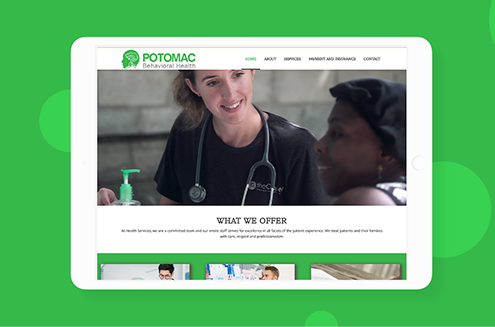 https://xoopah.com/wp-content/uploads/2021/03/health-thumb.png
327
626
blogMaster
/wp-content/uploads/2020/06/xoopah.png
blogMaster2021-03-11 12:05:172023-01-18 07:49:04Some key features of a good healthcare website design
https://xoopah.com/wp-content/uploads/2021/03/health-thumb.png
327
626
blogMaster
/wp-content/uploads/2020/06/xoopah.png
blogMaster2021-03-11 12:05:172023-01-18 07:49:04Some key features of a good healthcare website designWord-of-mouth has always been a significant factor in consumers’ regard for a business’s image and credibility. However, with today’s extensive internet access and the rising role of eCommerce, research has shown that online customer reviews now carry the same weight as a personal recommendation from somebody you know.
However, it’s crucial to keep in mind that people will consider a high-quality and genuine review. If it appears to be spam or sponsored, it will usually negatively impact and repel customers.
Customer Behavior
Customers are more inclined to buy from a website that displays reviews than one that doesn’t. Allowing reviews on your website and social media pages instills confidence in potential consumers’ purchase decisions and eliminates uncertainty about your products, resulting in a greater conversion rate.
It can also help to improve the trust and reliability of your brand. Ultimately, these factors go a long way in retaining existing customers and expanding your consumer base.
We will go over the what, the why, and the how of the impact of online customer reviews on consumer preferences and purchase intent.
What effect do reviews have? Why do online reviews—both negative and positive—hold such sway? And how and to what extent consumer preferences can change based on feedback from others.
Businesses must study these considerations and assess how to incorporate them into their future marketing strategies to enhance consumer purchasing.
How it All Started.
Customers were initially permitted to publish product reviews on Amazon in 1995—a decision that some questioned as being possibly damaging to sales. Product reviews, however, rapidly became an online commerce staple.
Although Amazon may have pioneered how consumers share product information, the pervasiveness and importance now given to consumer reviews highlight that all businesses (regardless of size) must incorporate reviews into their digital purchasing experience.
What the Research Says for Online Customer Reviews
A growing amount of evidence shows reviews do contribute to more significant revenue.
According to Harvard Business School research, internet reviews may significantly influence your bottom line. Positively perceived brands sell more, but raising your star rating can boost your sales.
According to the study, a one-star increase on Yelp.com results in a 5 percent to 9 percent increase in sales in the near term. Thus, these statistics highlight how even a minor enhancement can significantly impact.
According to the Spiegel Research Center at Northwestern University, approximately 95% of customers examine internet reviews before purchasing. Before visiting a company, 90 percent of customers read at least one online review in 2016. Furthermore, 94 percent of internet buyers said a poor review influenced their decision not to visit a business.
Yet another survey conducted by Brightlocal found the following:
- Consumers are ‘highly’ or ‘fairly’ inclined to utilize a company that replies to all of its online evaluations, according to 89 percent of respondents.
- Only 3% of people stated they would consider doing business with a company with an average star rating of two or fewer stars in 2021, down from 14% in 2020.
These statistics highlight how significant the impact of online customer views on purchase intentions is. Therefore, you should give due importance to ensuring that your brand profiles are favorable and that your company takes the time to evaluate your online reputation.
How Online Customer Reviews Impact Purchasing Intent
There are many ways that online customer reviews have become an indispensable part of the online shopping experience for consumers and a valuable business tool for companies. Here is a recap of some of the reviews of the most acute effects have had on eCommerce.
There are many ways that online customer reviews have become an indispensable part of the online shopping experience for consumers and a valuable business tool for companies. Here is a recap of some of the reviews of the most acute effects have had on eCommerce.
1. Part of Decision Making
A proactively cultivated company brand promotes your online presence, which nowadays includes encouraging people to talk about you and your products in various ways. Along with social media, the ability for consumers to share their experience of interacting with you on other platforms is an essential aspect of your online presence.
According to almost two-thirds of shoppers, reading through online reviews has become a critical component of the decision-making process before making a purchase. Consumers are now more inclined to use websites such as Google, Yelp, and TripAdvisor for recommendations than consult a newspaper or even their friends and relatives.
Before making a purchase, the average customer reads reviews (and their responses) for roughly 14 minutes. By encouraging a steady stream of such reviews, your business has a higher chance of showing up when shoppers decide what to buy.
This sentiment is also true for offline purchases as shoppers check out online reviews for an item before going into a brick-and-mortar location—a phenomenon known as showrooming.
2. Increase Visibility
Reviews left by consumers tend to be keyword-rich and contextually relevant, which are two crucial components that ensure a high ranking on Google’s search results.
Online customer feedback can provide a consistent stream of (ideally) good and unique content that search engines greatly value.
Additionally, when your website is regularly rated higher, both people and search engine algorithms regard your business as an expert in your industry, which results in further increased visibility and exposure.
Becoming a successful brand necessitates that you are constantly visible to consumers. Ultimately, it is this visibility that translates into increased sales.
3. Increase Site Traffic
In a variety of ways, customer reviews boost website traffic.
First, they’re an excellent means to get previous consumers to return to your page. Favorable product reviews require consumers to go back to your website to post about their experience with your brand—and may potentially inspire another purchase.
Second, as previously mentioned, reviews can boost your search engine ranking, which results in more organic traffic to your product and category pages. This especially holds for longer search phrases, which may have less competition in search results than more general terms.
Finally, advertising your favorable reviews is an excellent method to build trust and motivate visitors to your website to see your product for themselves.
4. Inspire Trust in Your Brand
One of the most significant benefits of online customer reviews is that they help establish trust and credibility for your brand name. This is especially valuable for a new smaller business.
It’s worth considering that around 70 percent of customers believe that online customer reviews are more trustworthy than sponsored posts or advertisements.
Reviews provide valuable information for people who are still uncertain about making a significant purchase or hold reservations about purchasing from an online business they are unfamiliar with.
Positive feedback will encourage potential shoppers to be more confident in doing business with you when they might not have otherwise.
5. Magnify Interest in Your Brand
‘Buzz marketing’ is generating excitement about a product, brand, or business. Essentially, it’s a strategy for getting customers enthusiastic about your product so that they’ll want to buy it and tell others.
Good reviews, especially with influencer marketing and user-generated content strategies, are an excellent way to generate buzz and FOMO (fear of missing out).
A successful marketing campaign targeting all three of these components can go a long way in solidifying the desirability of your products that translates casual interest into actual purchases.
6. Serve as a Direct Line of Communication to Consumers
Customer evaluations are a terrific approach to making the eCommerce experience more personal and human. Reviews encourage interaction between you and your consumers and between customers.
It is not enough to publish your consumer reviews. Customers today expect brands to respond to their comments appropriately and quickly.
Therefore, reviews allow you to be open and honest with customers and reinforce favorable feedback with thanks or further promotions. Furthermore, swiftly rectifying problems highlighted in poor reviews shows that you listen to your consumers and care about their concerns.
Replying in an open and friendly manner and personalizing your responses to each review gives your brand a face.
One of the primary reasons Amazon introduced product evaluations two decades ago was to foster a sense of community around the online shopping experience. As time has proved, this was nothing short of a resounding success.
7. Provide Added Customer Feedback
Reading through extensive customer feedback may offer significant insight and context for products that consumers may not have had access to otherwise.
For example, some buyers provide information on a brand’s sizing (are they bigger or smaller than average?), fit (is it lose or form-fitting?), and color (is it the same as shown?). However, this information is often not included in product descriptions or photographs—or is not as thoroughly elaborated upon.
Reviews convey a shopper’s hands-on experience of owning and purchasing the product. Within minutes, a shopper can gather the pros and cons of a particular item, potential problems they may face, and even videos/photos from previous buyers. In addition, they detail what dealing with the retailer was like—such as whether the order arrived quickly, any mistakes in the delivery process, or if returning/exchange was a simple procedure.
When customers share this information in the form of a favorable review, it sends a message to future buyers that this product, establishment, or brand is reliable and worth investing in.
Mitigating the Effects of Negative Reviews
Unfavorable feedback has a negative influence on your business. A negative review reflects poorly on the quality and reliability of your product or service.
However, there is one essential point to keep in mind: a product with zero poor reviews won’t fare well either, as it will diminish the credibility of your business.
All favorable reviews give the impression that the entire website is fake. A couple of minor bad reviews in a sea of positive ones show that you’re a legitimate company. After all, no one is flawless, and businesses are no exception.
When a negative review or two eventually creep up, consider it a chance to highlight your customer service skills. Rectifying the concerns raised in an unfavorable customer evaluation might benefit potential buyers since it demonstrates that you care about both your consumers and the quality of your products.
On the other hand, leaving such reviews unaddressed will only harm your reputation and your consumer relationships.
Conclusion
For many people shopping online, reviews are a critical deciding factor on whether or not they want to purchase a product or service.
Customer and business trust grows as a result of buyer feedback and ratings. A substantial number of reviews with an overwhelming amount of favorable ones help establish initial trust, eventually converting casual visitors to your website into paying clients.
Xoopah can help you do just that. Xoopah was founded to assist small companies in growing by making them more discoverable and accessible and allowing them to retain clients for life.
Xoopah offers small company owners simple and innovative growth tools that help them expedite customer interactions, organize connections, respond to reviews, and more.
You can effortlessly communicate and make every interaction count with Xoopah’s interaction management tool suite. To find out more, get in touch with one of our sales representatives today!


